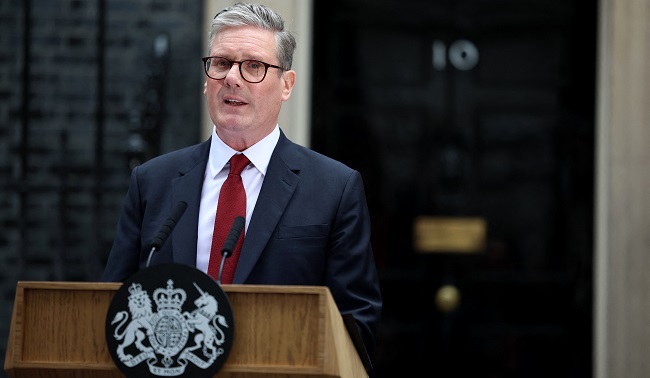UK Prime Minister Sir Keir Starmer has urged Iran to “refrain” from attacking Israel during a phone call with Iran’s new president.
Sir Keir told Masoud Pezeshkian that there was a “serious risk of miscalculation and now was the time for calm and careful consideration,” according to Downing Street.
This marks the first call between a UK prime minister and an Iranian president since March 2021, when former British leader Boris Johnson spoke to Hassan Rouhani.
News of the 30-minute discussion came as the UK issued a joint statement with the US, France, Italy, and Germany, urging Iran to cease its threats against Israel.
They called on Iran to “stand down its ongoing threats of a military attack against Israel” and discussed the serious consequences for regional security if such an attack were to occur.
The leaders, who spoke together by phone, also expressed their support for the “defense of Israel against Iranian aggression and against attacks by Iran-backed terrorist groups.”
Fears of a wider conflict in the Middle East have been growing following the recent assassination of senior Hezbollah and Hamas leaders.
On Sunday, the US confirmed it had sent a guided missile submarine to the region in response to these concerns. The submarine can carry up to 154 Tomahawk cruise missiles, which are used to strike land targets.
The US also ordered the USS Abraham Lincoln carrier strike group, which is carrying F-35C fighter jets, to accelerate its journey to the region. The ship was already en route to replace another US vessel in the area.
White House National Security Council spokesman John Kirby later said that the US shared Israel’s concerns that it was “increasingly likely that there will be an attack by Iran and or its proxies and perhaps in the coming days”.
“That is why we have been continually speaking to our Israeli counterparts and other counterparts in the region,” Mr Kirby added.
Rear Adm Daniel Hagari, a spokesman for the Israel Defense Forces (IDF), stated that the country takes its enemies’ threats seriously and that Israel is at “peak preparedness for attack and defense.”
Downing Street also announced on Monday that Prime Minister Keir Starmer had expressed to Mr. Pezeshkian his “deep concern about the situation in the region” and called on all parties to de-escalate and avoid further regional confrontation.
Iran blames Israel for the assassination of Hamas leader Ismail Haniyeh on their soil late last month and has vowed to retaliate.
Israel, currently engaged in a war to destroy Hamas in Gaza, has not commented but is widely believed to be responsible for the killing.
Iran’s acting foreign minister said last week that the country would respond to Haniyeh’s killing at the “right time” and in the “appropriate” manner.
The Organization of Islamic Cooperation (OIC), a group of states with Muslim-majority populations, held Israel fully responsible for the attack, calling it “a serious infringement” of Iran’s sovereignty.
Ismail Haniyeh is not the only senior Hamas member recently killed. Israel also announced that the group’s military chief, Mohammed Deif, was killed in an airstrike in the Gaza Strip last month.
The Iranian-backed Lebanese group Hezbollah, which is also in conflict with Israel, has stated it would retaliate for the death of its senior commander Fuad Shukr.
Canadian Prime Minister Justin Trudeau on Monday urged his country’s citizens to leave Lebanon as soon as possible, warning of the risk of escalating tensions.
Airlines including Lufthansa, Swiss Air, and EasyJet have either canceled or suspended flights to the Middle East.


